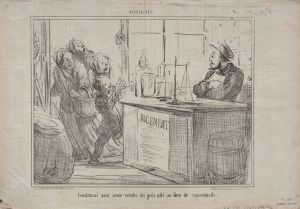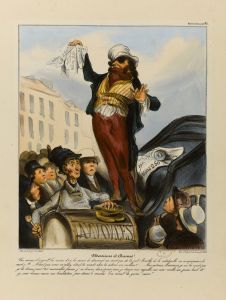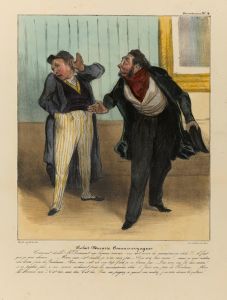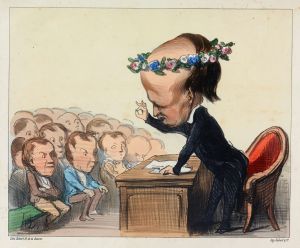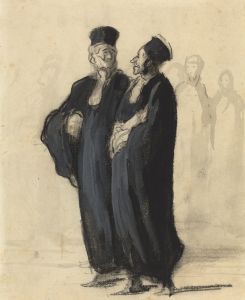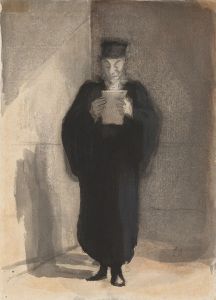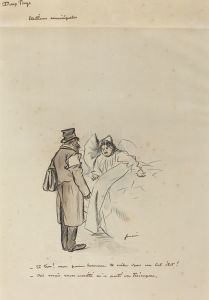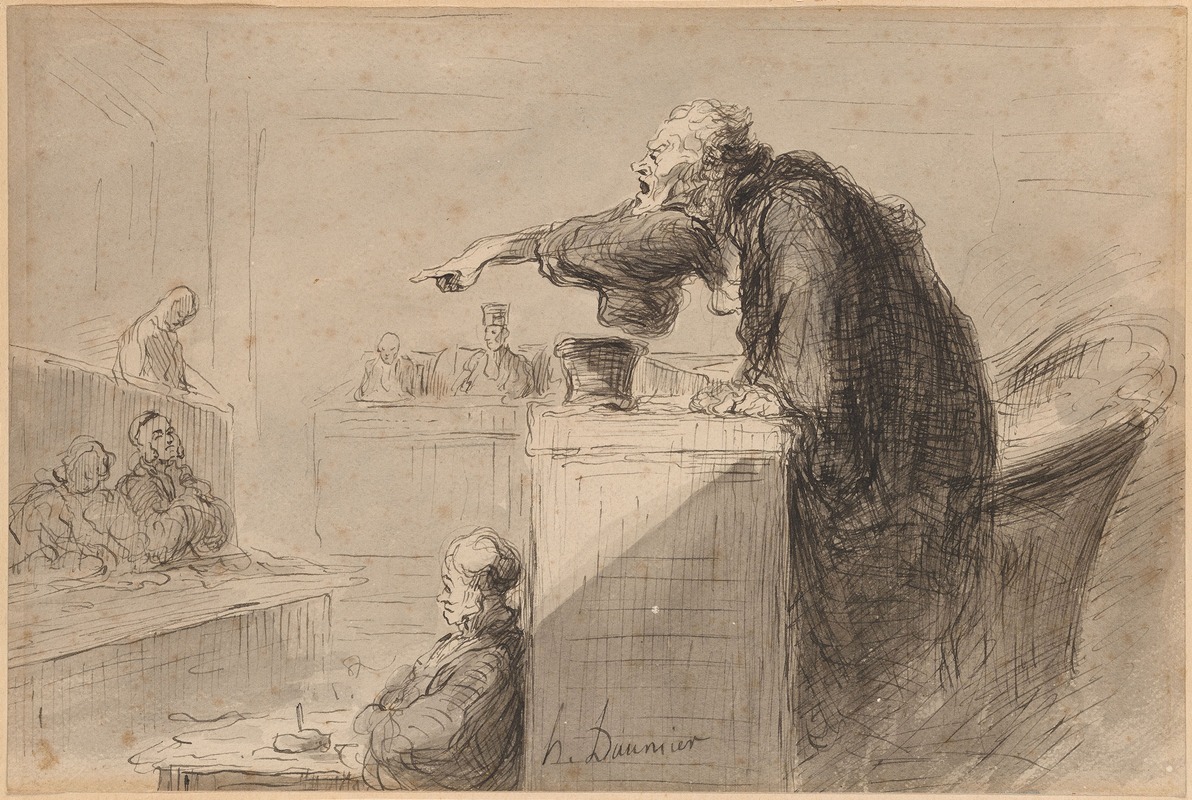
The Accusation
A hand-painted replica of Honoré Daumier’s masterpiece The Accusation, meticulously crafted by professional artists to capture the true essence of the original. Each piece is created with museum-quality canvas and rare mineral pigments, carefully painted by experienced artists with delicate brushstrokes and rich, layered colors to perfectly recreate the texture of the original artwork. Unlike machine-printed reproductions, this hand-painted version brings the painting to life, infused with the artist’s emotions and skill in every stroke. Whether for personal collection or home decoration, it instantly elevates the artistic atmosphere of any space.
Honoré Daumier, a prominent French artist known for his caricatures, paintings, and sculptures, created a significant body of work that often critiqued social and political issues of his time. However, there is no widely recognized painting titled "The Accusation" by Daumier. It is possible that there may be confusion with another work or a misattribution. Daumier's oeuvre is extensive, and he is best known for his lithographs and paintings that capture the essence of 19th-century French society.
Daumier was born in Marseille, France, in 1808 and moved to Paris with his family in 1816. He began his artistic career as a lithographer, producing satirical cartoons for various publications. His work often targeted the political figures and social injustices of his era, which sometimes led to legal repercussions. One of his most famous lithographs, "Gargantua," depicted King Louis-Philippe as a giant consuming the resources of the poor, resulting in Daumier's imprisonment for six months.
In addition to his lithographic work, Daumier was also a skilled painter and sculptor. His paintings often depicted scenes of everyday life, capturing the struggles and humanity of the working class. Some of his notable paintings include "The Third-Class Carriage," which portrays the somber and crowded conditions of public transportation, and "The Laundress," which highlights the laborious work of women in society.
Daumier's style is characterized by its expressive use of line and form, often emphasizing the emotional and psychological aspects of his subjects. His work is considered a precursor to the Realist movement, as he focused on depicting the realities of life rather than idealized versions. Despite his significant contributions to art, Daumier did not achieve widespread recognition during his lifetime and lived in relative poverty.
Throughout his career, Daumier remained committed to using his art as a tool for social commentary. His ability to capture the essence of human experience with empathy and insight has left a lasting impact on the art world. Today, his works are held in major museums and collections worldwide, and he is remembered as one of the most influential artists of the 19th century.
If "The Accusation" is indeed a lesser-known or misattributed work, it is not widely documented in the existing literature on Daumier. For those interested in exploring Daumier's contributions to art, it is recommended to study his more recognized works and the context in which he created them. His legacy as a keen observer of society and a master of satire continues to resonate with audiences today.







